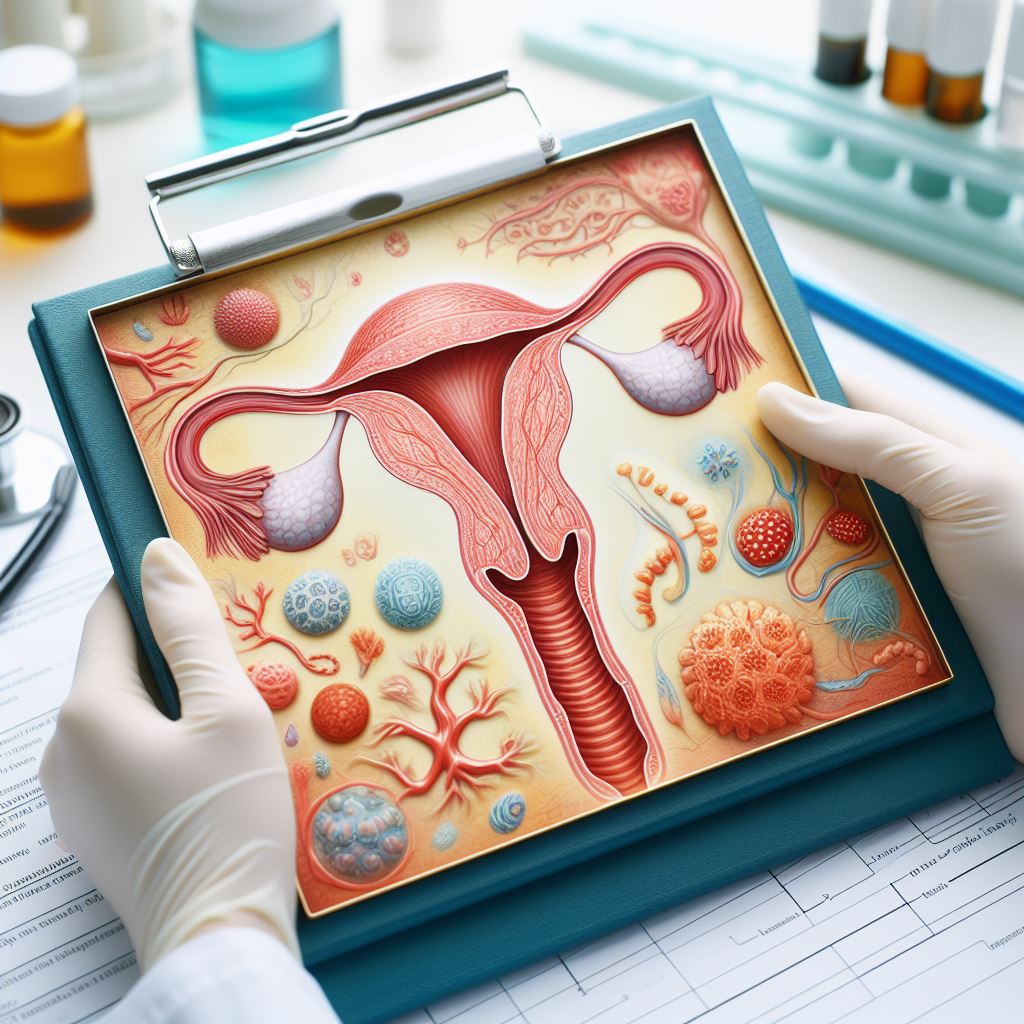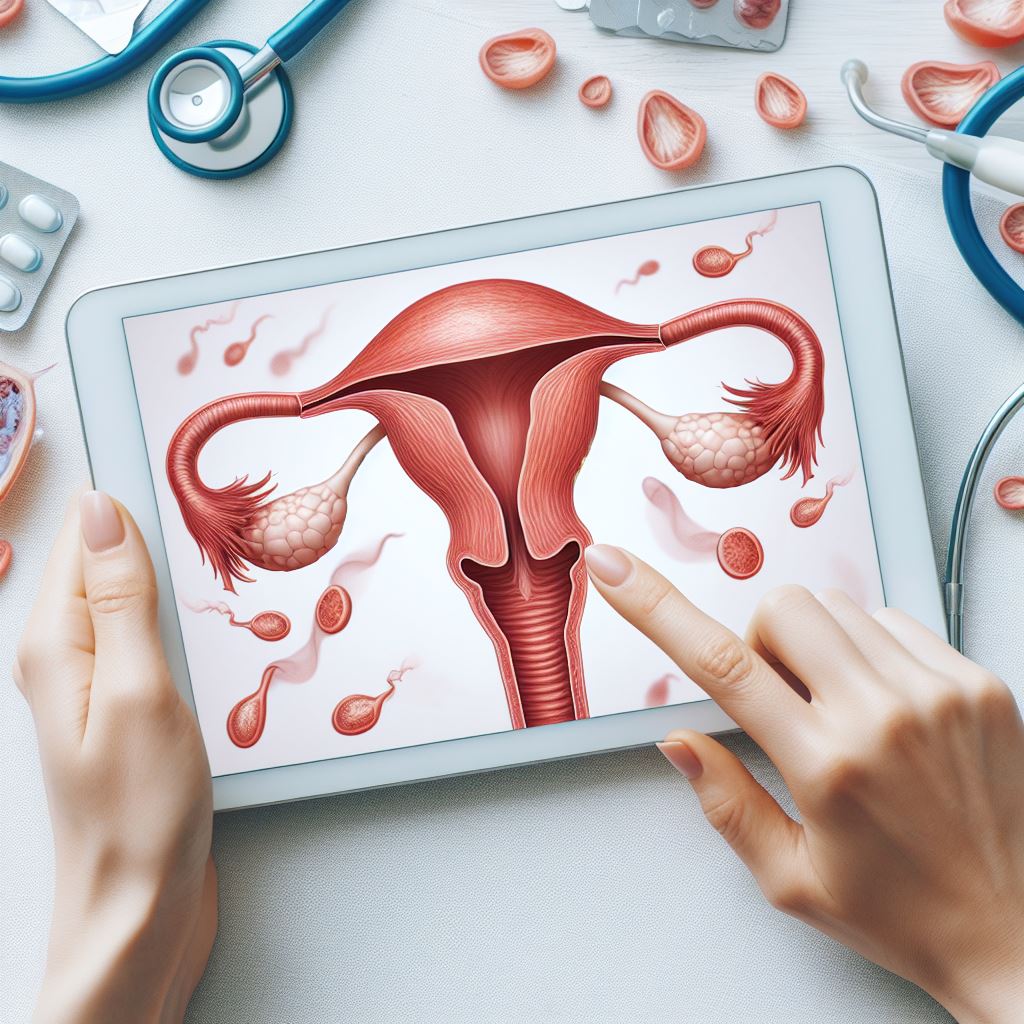Introduction
Are you struggling to conceive? Do you want to boost your chances of getting pregnant naturally? If you answered yes, then you are not alone. Many women face fertility issues due to various factors such as age, stress, hormonal imbalance, lifestyle, and medical conditions. While some of these factors may require medical intervention, there are also some natural remedies that can help improve your fertility and prepare your body for a healthy pregnancy.
In this blog post, we will explore some of the most effective natural remedies for improving fertility in women. These remedies are based on scientific evidence, traditional wisdom, and common sense. They are easy to follow and do not have any harmful side effects. However, before trying any of these remedies, it is advisable to consult your doctor and get a proper diagnosis of your fertility problem.
What is Fertility and How is it Affected?
Fertility is the ability to conceive and carry a pregnancy to term. It depends on various factors such as the quality and quantity of eggs and sperm, the functioning of the reproductive organs, the timing of ovulation and intercourse, and the implantation and development of the embryo. Fertility can be affected by both internal and external factors, such as:
- Age: As women get older, their egg quality and quantity decline, making it harder to conceive and increasing the risk of miscarriage and chromosomal abnormalities.
- Stress: Stress can disrupt the hormonal balance and affect the ovulation cycle, reducing the chances of conception. Stress can also affect the blood flow to the reproductive organs and impair the implantation of the embryo.
- Hormonal imbalance: Hormones play a vital role in regulating the reproductive cycle and preparing the body for pregnancy. Hormonal imbalance can cause irregular periods, anovulation, polycystic ovary syndrome (PCOS), endometriosis, fibroids, and other conditions that can impair fertility.
- Lifestyle: Lifestyle factors such as smoking, alcohol, caffeine, drugs, obesity, underweight, poor diet, lack of exercise, and exposure to environmental toxins can negatively affect fertility by damaging the eggs and sperm, altering the hormonal balance, and affecting the overall health and well-being of the body.
- Medical conditions: Some medical conditions such as diabetes, thyroid disorders, autoimmune diseases, infections, and sexually transmitted diseases (STDs) can interfere with fertility by affecting the quality and quantity of eggs and sperm, causing inflammation and scarring of the reproductive organs, and compromising the immune system.
How Can Natural Remedies Help Improve Fertility?
Natural remedies are methods that use natural substances or practices to enhance health and well-being. They can help improve fertility by addressing the underlying causes of infertility, such as hormonal imbalance, stress, inflammation, oxidative stress, and nutritional deficiencies. Some of the benefits of natural remedies for improving fertility are:
- They are safe and gentle: Natural remedies do not have any harmful side effects or interactions with other medications. They are gentle on the body and do not cause any adverse reactions.
- They are holistic and comprehensive: Natural remedies do not focus on one aspect of fertility, but rather on the whole body and mind. They aim to restore the balance and harmony of the body systems and enhance the overall health and well-being of the individual.
- They are affordable and accessible: Natural remedies are usually inexpensive and easy to obtain. They can be found in your kitchen, garden, or local store. They do not require any prescription or special equipment.
- They are empowering and self-reliant: Natural remedies give you the opportunity to take charge of your own health and fertility. They allow you to learn more about your body and its needs, and to make informed choices that suit your preferences and goals.
What are Some of the Best Natural Remedies for Improving Fertility in Women?
There are many natural remedies that can help improve fertility in women, but here are some of the most effective ones:
Diet: Diet is one of the most important factors that affect fertility. A healthy and balanced diet can provide the essential nutrients and antioxidants that support the reproductive health and function. Some of the best foods for improving fertility are:
Fruits and vegetables: Fruits and vegetables are rich in vitamins, minerals, fiber, and phytochemicals that can protect the eggs and sperm from oxidative damage, reduce inflammation, and regulate the hormonal balance. They also provide folate, which is crucial for the development of the neural tube and the prevention of birth defects. Some of the best fruits and vegetables for fertility are berries, citrus fruits, leafy greens, broccoli, carrots, tomatoes, and avocado.
Whole grains: Whole grains are a good source of complex carbohydrates, fiber, and B vitamins that can support the energy production, metabolism, and nervous system function. They can also help regulate the blood sugar levels and prevent insulin resistance, which can impair ovulation and fertility. Some of the best whole grains for fertility are oats, quinoa, brown rice, buckwheat, and millet.
Protein: Protein is essential for the growth and repair of the cells and tissues, including the eggs and sperm. It also helps balance the hormones and support the immune system. However, not all protein sources are equal. Animal protein, especially red meat, can increase the inflammation and acidity in the body, and affect the quality and quantity of eggs and sperm. Plant protein, on the other hand, can provide the amino acids and antioxidants that can improve fertility. Some of the best plant protein sources for fertility are beans, lentils, nuts, seeds, tofu, and tempeh.
Healthy fats: Fats are important for the production and function of hormones, especially estrogen and progesterone, which regulate the ovulation and menstrual cycle. They also help maintain the cell membrane integrity and fluidity, which is vital for the transport and communication of the eggs and sperm. However, not all fats are beneficial for fertility. Saturated fats and trans fats can increase the inflammation and cholesterol levels in the body, and affect the blood flow and oxygen delivery to the reproductive organs. Unsaturated fats, especially omega-3 fatty acids, can reduce the inflammation and oxidative stress, and improve the egg and sperm quality. Some of the best sources of healthy fats for fertility are olive oil, coconut oil, flaxseed oil, walnuts, chia seeds, hemp seeds, and fatty fish such as salmon, mackerel, and sardines.
Water: Water is essential for the hydration and detoxification of the body. It helps flush out the toxins and waste products that can impair fertility. It also helps maintain the cervical mucus, which is important for the sperm motility and survival. Water also helps prevent dehydration, which can cause headaches, fatigue, and mood swings, and affect the hormonal balance and ovulation. It is recommended to drink at least eight glasses of water per day, and avoid caffeinated and alcoholic beverages, which can dehydrate and irritate the body.
Supplements: Supplements are products that contain concentrated amounts of nutrients or herbs that can enhance the health and function of the body. They can help improve fertility by filling in the nutritional gaps, correcting the hormonal imbalance, boosting the immune system, and supporting the reproductive organs. However, not all supplements are safe and effective for fertility. Some of them may have side effects or interactions with other medications. Therefore, it is advisable to consult your doctor before taking any supplements, and to choose high-quality and reputable brands. Some of the best supplements for improving fertility in women are:
Folic acid: Folic acid is a form of vitamin B9 that is essential for the DNA synthesis and repair, and the prevention of neural tube defects in the fetus. It can also help improve the egg quality and reduce the risk of miscarriage and chromosomal abnormalities. The recommended daily intake of folic acid for women who are trying to conceive is 400 mcg, and for women who are pregnant is 600 mcg. Folic acid can be found in foods such as leafy greens, beans, lentils, nuts, seeds, and fortified cereals, or in supplements such as prenatal vitamins.
Vitamin D: Vitamin D is a fat-soluble vitamin that is important for the absorption and utilization of calcium and phosphorus, which are essential for the bone health and development. It can also help regulate the immune system and the inflammation, and modulate the expression of genes that are involved in the reproductive function. Vitamin D deficiency has been linked to infertility, PCOS, endometriosis, and recurrent miscarriage. The recommended daily intake of vitamin D for women who are trying to conceive is 600 IU, and for women who are pregnant is 800 IU. Vitamin D can be obtained from exposure to sunlight, foods such as fatty fish, egg yolks, cheese, and mushrooms, or supplements such as vitamin D3 or D2.
Coenzyme Q10 (CoQ10): CoQ10 is a compound that is involved in the production of energy in the cells, especially in the mitochondria, which are the powerhouses of the cells. It can also act as an antioxidant and protect the cells from oxidative damage. CoQ10 can help improve fertility by enhancing the egg quality and quantity, and increasing the chances of implantation and pregnancy. The recommended daily dose of CoQ10 for women who are trying to conceive is 100-300 mg, and for women who are pregnant is 200-400 mg. CoQ10 can be found in foods such as organ meats, beef, chicken, fish, nuts, seeds, and spinach, or in supplements such as ubiquinol or ubiquinone.
Omega-3 fatty acids: Omega-3 fatty acids are a type of unsaturated fat that can reduce the inflammation and oxidative stress, and improve the blood flow and oxygen delivery to the reproductive organs. They can also help regulate the hormones and support the implantation and development of the embryo. Omega-3 fatty acids have been shown to improve the egg quality and quantity, and increase the chances of pregnancy and live birth. The recommended daily intake of omega-3 fatty acids for women who are trying to conceive is 1.1 g, and for women who are pregnant is 1.4 g. Omega-3 fatty acids can be obtained from foods such as fatty fish, walnuts, chia seeds, hemp seeds, and flaxseed oil, or supplements such as fish oil or algae oil.
Zinc: Zinc is a mineral that is essential for the synthesis and function of proteins, enzymes, and hormones, including the ones that are involved in the reproductive process. Zinc can help improve fertility by enhancing the egg and sperm quality and quantity, and supporting the ovulation and menstrual cycle. Zinc deficiency can lead to infertility, miscarriage, and low birth weight. The recommended daily intake of zinc for women who are trying to conceive is 8 mg, and for women who are pregnant is 11 mg. Zinc can be found in foods such as oysters, beef, chicken, turkey, pumpkin seeds, cashews, and yogurt, or supplements such as zinc gluconate or zinc citrate.
Vitex: Vitex is a herb that is also known as chasteberry or monk’s pepper. It can help improve fertility by balancing the levels of estrogen and progesterone, which are the main hormones that regulate the ovulation and menstrual cycle. Vitex can also help reduce the symptoms of PMS, such as mood swings, bloating, and breast tenderness, and increase the chances of implantation and pregnancy. Vitex can be taken as a tea, tincture, capsule, or tablet, and the recommended dose is 20-40 mg per day. Vitex should be taken in the morning, preferably before breakfast, and for at least three months to see the results. Vitex should not be taken with hormonal contraceptives or fertility drugs, as it may interfere with their effectiveness.
- Exercise: Exercise is a physical activity that can improve the health and function of the body and mind. It can help improve fertility by:
- Reducing stress: Exercise can release endorphins, which are the natural painkillers and mood boosters of the body. It can also lower the levels of cortisol, which is the stress hormone that can disrupt the hormonal balance and affect the ovulation and fertility. Exercise can help you cope with the emotional and physical challenges of infertility, and improve your self-esteem and confidence.
- Regulating weight: Exercise can help you maintain a healthy weight, which is important for fertility. Being overweight or underweight can affect the hormonal balance and the ovulation and menstrual cycle, and increase the risk of infertility, miscarriage, and pregnancy complications. Exercise can help you burn calories, build muscle, and lose fat, and achieve a healthy body mass index (BMI) of 18.5-24.9.
- Improving blood circulation: Exercise can help improve the blood circulation and oxygen delivery to the body, especially to the reproductive organs. This can enhance the health and function of the eggs and sperm, and increase the chances of conception and implantation. Exercise can also help prevent or treat conditions that can impair fertility, such as diabetes, high blood pressure, and high cholesterol.
However, not all types of exercise are beneficial for fertility. Some of them may be too intense or too frequent, and cause more harm than good. Some of the best types of exercise for improving fertility are:
- Acupuncture: Acupuncture is a traditional Chinese medicine technique that involves inserting thin needles into specific points on the body, called acupoints, to stimulate the flow of energy, or qi, and restore the balance and harmony of the body and mind. Acupuncture can help improve fertility by:
- Regulating the hormones: Acupuncture can influence the activity of the hypothalamus, pituitary, and ovaries, which are the main organs that control the production and release of hormones, such as follicle-stimulating hormone (FSH), luteinizing hormone (LH), estrogen, and progesterone. Acupuncture can help regulate the hormonal balance and the ovulation and menstrual cycle, and increase the chances of conception and implantation.
- Improving the blood flow: Acupuncture can dilate the blood vessels and improve the blood flow and oxygen delivery to the body, especially to the reproductive organs. This can enhance the health and function of the eggs and sperm, and increase the chances of conception and implantation. Acupuncture can also help prevent or treat conditions that can impair fertility, such as PCOS, endometriosis, fibroids, and pelvic inflammatory disease (PID).
- Reducing the stress: Acupuncture can stimulate the release of endorphins, which are the natural painkillers and mood boosters of the body. It can also lower the levels of cortisol, which is the stress hormone that can disrupt the hormonal balance and affect the ovulation and fertility. Acupuncture can help you cope with the emotional and physical challenges of infertility, and improve your self-esteem and confidence.
Acupuncture should be done by a qualified and experienced practitioner, who can tailor the treatment to your specific needs and goals. Acupuncture should be done for at least 30 minutes, once or twice per week, and for at least three months to see the results. Acupuncture can be combined with other natural remedies or conventional treatments, such as fertility drugs or assisted reproductive technology (ART), to enhance their effectiveness and reduce their side effects.
Conclusion
Fertility is a complex and multifaceted phenomenon that can be influenced by various factors, such as age, stress, hormonal imbalance, lifestyle, and medical conditions. While some of these factors may require medical intervention, there are also some natural remedies that can help improve your fertility and prepare your body for a healthy pregnancy. These natural remedies include diet, supplements, exercise, acupuncture, and others. They are safe, gentle, holistic, affordable, and accessible. They can help you address the underlying causes of infertility, such as hormonal imbalance, stress, inflammation, oxidative stress, and nutritional deficiencies. They can also help you enhance the quality and quantity of eggs and sperm, and increase the chances of conception, implantation, and live birth.
However, before trying any of these natural remedies, it is advisable to consult your doctor or fertility coach and get a proper diagnosis of your fertility problem. Your doctor or fertility coach can help you determine the best course of action for your specific case, and monitor your progress and outcomes. They can also help you avoid any potential risks or complications that may arise from using these natural remedies, such as allergic reactions, interactions, or overdoses. Your doctor can also help you decide whether to combine these natural remedies with other conventional treatments, such as fertility drugs or ART, to optimize your chances of success.
Remember, fertility is not a one-size-fits-all issue, and everyone’s journey is different. What works for one person may not work for another, and what works today may not work tomorrow. Therefore, it is important to be patient, flexible, and open-minded, and to try different options until you find the one that suits you best. It is also important to be positive, hopeful, and supportive, and to seek help and guidance from your partner, family, friends, or professionals, whenever you need it. Fertility is not a destination, but a journey, and you are not alone in it. You can do it, and you will do it.






